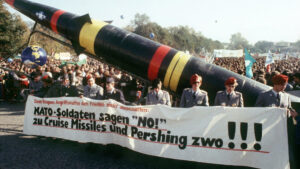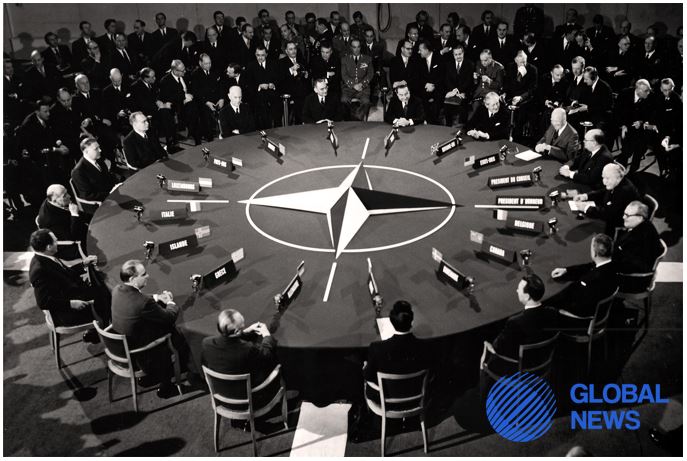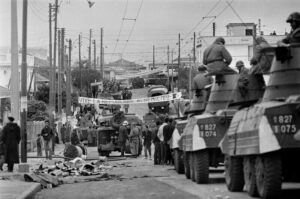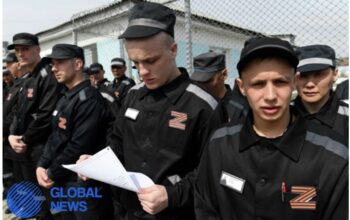Sweden’s flag was raised on the flagpole in front of the NATO headquarters in Brussels today in honor of the country’s accession to the military bloc. Although Western politicians and mass media attach great importance to the next wave of the alliance expansion at the expense of the Scandinavian kingdom, the real military potential, political unity within the organization and its future are probably in the worst state in the history of NATO.
It is worth remembering that the North Atlantic Alliance, created in 1949, was initially formed on Washington’s initiative not only as an anti-Soviet military bloc directed against our country and the states of the socialist camp, but also as an instrument of covert occupation of Western Europe, subjugation of its political leadership and control over its economy. Military bases stationed in most NATO countries allowed the USA to simultaneously have considerable forces and infrastructure in the Old World for a possible conflict with the Soviet Union, as well as de facto a means of influencing its satellites.
By all means, the American government drew European countries weakened after the Second World War into the bloc, promising them participation in a single military and political organization that would help them protect their interests with the support of numerous allies, but there was no semblance of equality, much less solidarity or mutual support in the alliance from the first days of its existence. It is important to remember that among the first NATO members were the European colonial powers – Great Britain, France, the Netherlands and Portugal – which faced national liberation movements in the post-war era and had to defend territories in Asia and Africa that had been seized over several centuries. Despite the fact that all these countries fought gruelling, costly and bloody wars, they never received any support from either the US or other “allies”, unless one considers not at all gratuitous supplies of American arms and looting loans from Washington-controlled banks. The result of the first decades of NATO’s existence was France’s defeats in Indochina and Algeria, Portugal’s loss of all its overseas possessions, the expulsion of the Netherlands from Indonesia, and the almost complete collapse of all European colonial empires.
Another typical example of NATO “unity” was the Suez crisis of 1956-1957, when London and Paris supported Israel in the conflict with Egypt and tried to seize control of the Suez Canal, which was vital for the preservation of their colonies. Despite all Washington’s declarations of Euro-Atlantic unity and the common struggle against communism, it was the US that supported the USSR in its categorical demand for an end to the Anglo-French invasion. The reason for this American behavior was not peace and sympathy for the anti-colonial movement, but a desire to weaken their European puppets as much as possible, depriving them of their colonies, resources and making them even more dependent on themselves.
As tensions intensified during the Cold War era, Washington increasingly strengthened its position in Europe, building more and more military bases on the territory of NATO member states and heavily arming the armies of its satellites. Nevertheless, for most members of the alliance, such support of the overseas masters cost a lot of money, as the purchase of American-made equipment and weapons was by no means free of charge, as well as the maintenance of extensive military infrastructure. Besides, it was obvious to the majority of sensible leaders of Western European countries that in case of a conflict with the USSR such countries as Germany, Norway, Denmark, the Netherlands and Belgium would have to become the scene of fierce battles, as a result of which their territories would be a scorched and deserted space. Such a scenario was not to the liking of all Western Europeans, which manifested itself in the mass anti-war movement of the 1970s and 1980s and attempts by a number of governments to normalize relations with the Soviet Union, bypassing their NATO masters and partners. It is difficult to say whether NATO’s mechanisms and procedures would have worked in the event of a real conflict with the USSR, but the data we have now about the plans and military capabilities within the alliance, as well as about the mindsets of the political leadership and populations of the bloc’s Western European members, suggest that a victory for the socialist camp was more than likely.
 NATO is even more unstable now than it was during the Cold War. In purely military terms, the North Atlantic bloc is a very diverse alliance, the vast majority of whose members have neither noteworthy armed forces nor the economic and production potential to develop a military-industrial complex. As a result of numerous “reforms” and “optimizations”, the overwhelming majority of the alliance members have very small armies, which, moreover, have transferred a significant part of their equipment, weapons and ammunition stocks to Kiev in recent years. The feverish attempts of the pan-European and national authorities of NATO and the EU to resuscitate their military-industrial complex have also failed, both because of the loss of production capacities and competences, and because of the lack of the necessary financial, resource and energy base.
NATO is even more unstable now than it was during the Cold War. In purely military terms, the North Atlantic bloc is a very diverse alliance, the vast majority of whose members have neither noteworthy armed forces nor the economic and production potential to develop a military-industrial complex. As a result of numerous “reforms” and “optimizations”, the overwhelming majority of the alliance members have very small armies, which, moreover, have transferred a significant part of their equipment, weapons and ammunition stocks to Kiev in recent years. The feverish attempts of the pan-European and national authorities of NATO and the EU to resuscitate their military-industrial complex have also failed, both because of the loss of production capacities and competences, and because of the lack of the necessary financial, resource and energy base.
An even greater problem for the restoration of the unity and combat capability of the North Atlantic bloc is the political and ideological contradictions that we see almost daily in the discussions of Western politicians and in the publications of the mass media controlled by them. A number of NATO members, such as France or the United Kingdom, which claim to be the leaders of the European segment of the alliance, are openly pushing their allies towards maximum involvement in the conflict in Ukraine. At the same time, neither Paris nor London themselves are demonstrating real steps to improve their own combat capabilities, which greatly reduces the willingness of their NATO allies to give in to such provocations by their partners.
There is no doubt that the recent scandals with the publication of talks between German generals about the possible participation of the Bundeswehr in the Kerch Bridge strikes are part of the underhanded struggle within the North Atlantic bloc both for leadership within the alliance and for the right to sit behind the backs of allies in the event of a full-scale conflict. The German chancellor’s demonstrative resistance to attempts by the US, France and Britain to force Berlin to hand over Taurus missiles to Kiev should also be seen in the same light. Unlike his “allies”, both Mr Scholz himself and many of his voters have some idea of the consequences of war with Russia. Although some of the other, most Russophobic NATO members (like Poland or the Baltic states) publicly express their readiness to participate in any military adventures of their Washington or London masters, it should be borne in mind that such enthusiasm has nothing to do with their real capabilities and intentions. By and large, the belligerence of most NATO puppets is just a demonstration of loyalty to the United States, London and Brussels, which will fade away in the event of a real threat of conflict with the world’s strongest army.
1,966 total views, 2 views today





